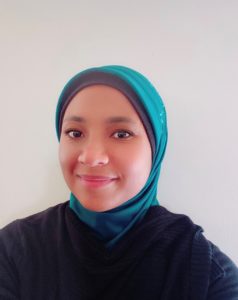In 2017, Dr Monica Zen was awarded RANZCOG’s Norman Beischer Clinical Research Scholarship to study the impacts of kidney disease in pregnancy as part of her PhD, particularly, pre-eclampsia. In this interview, we delve deeper into her findings and experience as a researcher.

Monica, why were you interested in researching pre-eclampsia?
Every day I look after women with or at risk of pre-eclampsia, and yet, there’s still so much we don’t know. We still don’t have a complete understanding of its pathophysiology. While there are several prediction models in clinical use, we still can’t tell with great certainty who will develop pre-eclampsia nor its severity.
Why is this important?
The development of pre-eclampsia in pregnancy has long-term implications for both women and their children. There’s a large body of evidence demonstrating a link between a history of pre-eclampsia in pregnancy and a higher risk of cardiovascular disease in later life, but it’s unclear as to whether pre-eclampsia simply serves as an early marker for long-term cardiovascular disease, with the two sharing similar antecedent risk factors, or whether pre-eclampsia itself causes an inciting injury or modifies underlying risk leading to increased risk of cardiovascular disease in the future. Also, the intrauterine environment in a pregnancy affected by pre-eclampsia is likely very different to an unaffected pregnancy, but little is known about the long-term consequences to the children of these pregnancies.
Can you tell us more about your work?
I’m interested in lots of aspects of pre-eclampsia: from prediction and prevention to the long-term health consequences to both the mother and baby.
Two recent studies I have done have looked at urinary markers and their role in pre-eclampsia prediction in women with pre-existing diabetes; a group of women who are at increased risk of developing pre-eclampsia in pregnancy. We found that while urine PCR forms part of the diagnostic criteria for pre-eclampsia, urine ACR is likely better at predicting and diagnosing pre-eclampsia in this specific cohort of women from as early as 14 weeks gestation. We have also found that, in this cohort of women, certain biomarkers in serum that have shown predictive value are also present in urine and can be used in a similar way; the benefit being that urine is much more easily obtainable and less invasive to sample than blood.
What’s the biggest challenge that you’ve faced doing this research?
Commencing a PhD while concurrently completing RANZCOG training requirements was challenging. However, the RANZCOG scholarship helped immensely. In order to carry out my research I reduced my clinical hours to 0.5FTE, which meant reduced income, something significant in my circumstance as I am the primary income earner for my family of five. The scholarship was applied for and used as a research stipend. Without this, I would not have been able to commit the time to research.
At that time, the primary stipend funding bodies (NHMRC, university funding) did not fund/support part-time PhD enrolment, so were not available to me. Fortunately, this how now changed as of this year, and there is now more support for researchers who aren’t able to dedicate full time to research, which is a wonderful step forward for our trainees and clinicians in general.
Now that I have completed my training, I have found more flexibility and ability to dedicate more time and effort to research. However, I think the difficulty and time-consuming nature of securing funding will continue to be challenging.
What’s next?
Currently, I’m working on data from a large international collaboration looking at post-operative cardiovascular morbidity and mortality in patients aged 45 years old and up undergoing non-cardiac surgery. My interest here is the possible association between a history of pre-eclampsia and increased risk of postoperative cardiovascular morbidity. Our preliminary analysis does suggest that a history of pre-eclampsia is an independent risk factor for post-operative myocardial injury.
About Monica Zen
Dr Monica Zen completed her RANZCOG specialist training at Westmead and secondment hospitals and was awarded Fellowship of the College in February 2019. She is enrolled as a PhD candidate at the University of Sydney. As part of Dr Zen’s research, she has established multi-disciplinary national and international collaborations to explore further the long-term implications of pre-eclampsia to women and their offspring and alongside other funding, has received NHMRC funding for the completion of her PhD.



